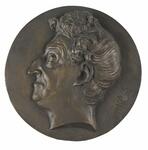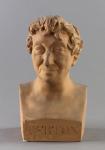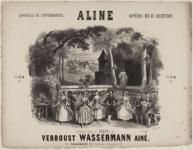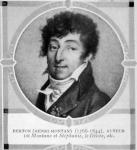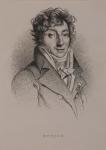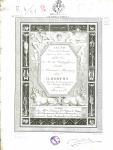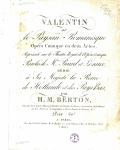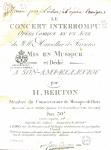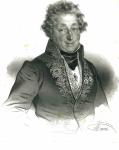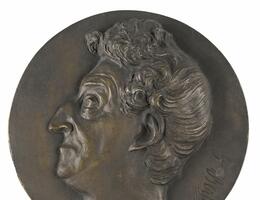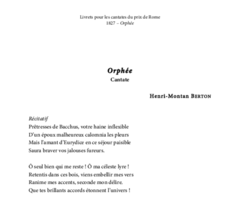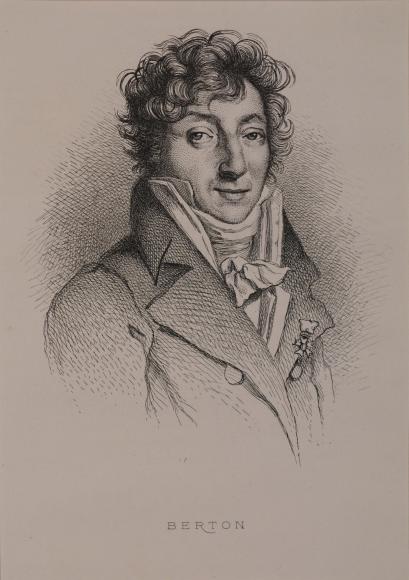
Henri-Montan BERTON
1767 - 1844
Conductor, Composer, Theatre director, Editor
The son of a director of the Paris Opéra, Henri-Montan Berton came from a family of musicians that played a prominent role until the 1830s in French cultural life. A student of Rey (violin) and Sacchini (composition), he joined the Opéra orchestra in 1782, before turning to a career as a composer. From 1786 onwards, he had various cantatas and operatic works performed in Paris, but did not really succeed in making a name for himself until several years later, gradually developing a truly individual style, particularly in his opera Les Rigueurs du cloître (1790). Guided by a very sure dramatic instinct, his development culminated with Montano et Stéphanie (1798), Le Délire (1799), then Aline, reine de Golconde (1803), without a doubt his finest operatic works. Recognised as an artist, Berton then acceded to various institutional positions. Appointed professor of harmony at the Paris Conservatoire on its foundation in 1795, then professor of composition in 1818, he also held the positions of director of music at the Théâtre-Italien (1807-1809) and then chorus master at the Opéra (1809-1815). A member of the Institut de France from 1815, he was one of the fiercest opponents of Rossini’s influence in France, judging his work to be “mechanical”, pretentious and incoherent in comparison with “philosophical” music, characterised according to him by a technique that served to promote thought alone. The position he took against the Italian composer largely explains why his name later fell into oblivion; he was the victim of a reactionary image that now needs to be more finely assessed.
Works
Le Concert interrrompu
Henri-Montan BERTON / Edmond de FAVIÈRES / Benoît-Joseph MARSOLLIER DES VIVETIÈRES
1802
Les Deux Mousquetaires ou La Robe de chambre
Henri-Montan BERTON / Justin GENSOUL / Jean-Baptiste-Charles VIAL
1824
Documents and archives

Testimonial, Correspondence

